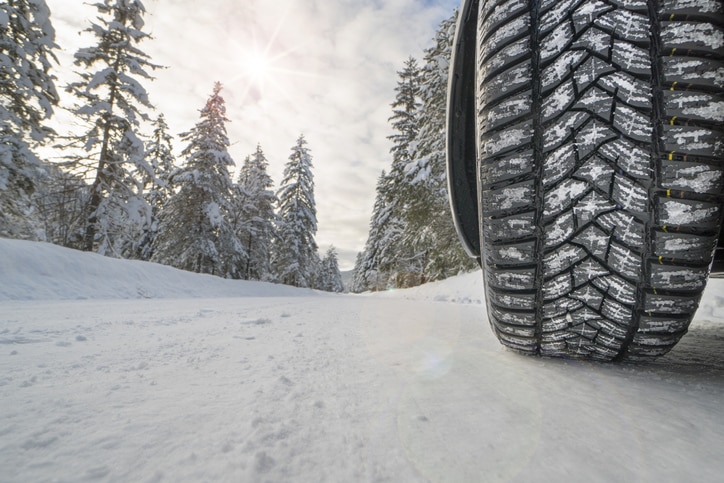
Most Canadian vehicle owners are familiar with the annual tradition of installing winter tires in the fall months as the temperatures begin to drop. While some procrastinators hold off on booking an appointment at the garage until the snow falls, this year those people might be out of luck as continuing supply chain issues reduce the stock of available tires. It’s never too early to turn your attention to one of your vehicle’s most important safety features: winter tires.
Although winter tires are not mandatory in Ontario, it is estimated that almost 70% of Ontarians drive with winter tires during the cold season. Of the remaining 30%, most drivers say that they don’t need special tires because they believe all season tires are “good enough.”
While all-season tires are good in many conditions, they are not optimal for harsh winter weather driving conditions. All-season tires are made with a harder rubber than winter tires, so when the temperature drops they stiffen and lose traction. All-season tires also do not have a tread adapted to snow.
Winter tires are made of softer rubber that stays flexible in colder temperatures. They offer better traction to grip on ice and snow. A different tread pattern uses wider grooves for winter road conditions.
Even if your vehicle is equipped with safety features such as electronic stability control and anti-lock brakes, these features are designed to work with the appropriate seasonal tires. These mechanical features cannot be solely relied upon in winter conditions as they will not perform up to their intended potential.
You might think you only need winter tires on your two drive train wheels if you don’t have an all-wheel drive vehicle. Think again! All of the vehicle’s wheels should be equipped with winter tires as you should never operate a vehicle with different types of tires. You should ensure that the tread depth on your winter tires is appropriate. After continued use, the tread becomes worn to the point that tires lose their traction in the snow and ability to evacuate slush. Generally speaking, the proper minimal depth for winter tire is 5/32 of an inch. Any tire with a shallower tread should be replaced.
Some winter tires are better than others; or that is at least what many manufactures would have you believe. Proper snow tires are identified with a snowflake symbol. When shopping for winter tires you should always do your research before you buy.
Many people leave changing over to their winter tires to the last minute. With the unpredictability of our weather patterns these days, as well as longer wait times as garages implement COVID-19 health and safety precautions, it’s a good idea to have your winter tires installed around Halloween to Remembrance Day. Wait any longer and you may find yourself caught in a surprise snow storm, or a freezing rainstorm that leaves an icy roadway. You will also find yourself waiting a few weeks longer to change your tires because of the booking backlog.
Summer tires should go back on around mid-April. We often get a last blast of winter in late March, so err on the side of caution. However, do not wait too long to change them. Winter tires tend to lose grip above 7 degrees Celsius and high temperatures will damage winter tires.
Be sure to store your tires in a cool dry place away from sun and light. Often the garage that changes over your tires will store them for you at a small cost.
Speaking of costs, price is often a factor when people decide not to buy winter tires. However, keep in mind that having a second set of tires does not double the expense. Since it halves the wear of your tires, you’ll buy new tires half as often. And, be sure to tell you insurer that you have installed winter tires since many insurance companies offer discounts on your insurance for using them.
In Ontario, the number of winter automobile accidents has been increasing over the last few years. Be part of the 70% of drivers who are prioritizing safety in hazardous winter conditions and invest in a pair of snow tires this year if you haven’t got them already.
At Howie, Sacks & Henry we represent all manner of accident victims, including those who have suffered injury at the hands of negligent operators of automobiles and trucks. If you or a loved one have been the victim of an injury as a result of a motor vehicle accident, please contact Michael Henry at 416-361-0889 or by e-mail mjhenry@hshlawyers.com.






